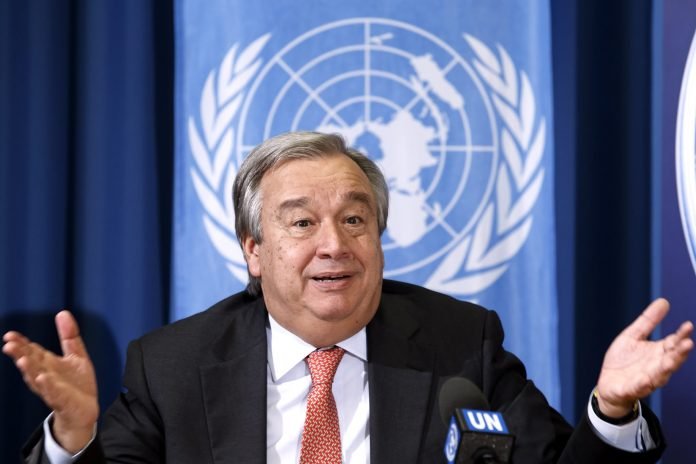
THE United Nations (UN) has announced a ban on nuclear weapons, to be enforced in 90 days after 50 countries ratified the treaty.
As of Friday, the treaty had 49 signatories, and the United Nations said the 50th ratification from Honduras had been received, the Nation reports.
Anti-nuclear activists have commended this move, which comes despite strong opposition by the United States and the other major nuclear powers.
UN Secretary-General Antonio Guterres hailed the 50 states and saluted “the instrumental work” of civil society in facilitating negotiations and pushing for ratification, UN spokesman Stephane Dujarric said.
The UN chief said the treaty’s entry into force on Jan. 22 is the result of a worldwide movement “to draw attention to the catastrophic humanitarian consequences of any use of nuclear weapons” and “is a tribute to the survivors of nuclear explosions and tests, many of whom advocated for this treaty”.
Beatrice Fihn, executive director of the International Campaign to Abolish Nuclear Weapons, the 2017 Nobel Peace Prize-winning coalition whose work helped spearhead the nuclear ban treaty, said: “The 50 countries that ratify this Treaty are showing true leadership in setting a new international norm that nuclear weapons are not just immoral but illegal.
“The United Nations was formed to promote peace with a goal of the abolition of nuclear weapons,” Fihn said. “This treaty is the U.N. at its best – working closely with civil society to bring democracy to disarmament.”
The treaty requires that all ratifying countries “never under any circumstances … develop, test, produce, manufacture, otherwise acquire, possess or stockpile nuclear weapons or other nuclear explosive devices.” It also bans any transfer or use of nuclear weapons or nuclear explosive devices – and the threat to use such weapons – and requires parties to promote the treaty to other countries.
![]()









